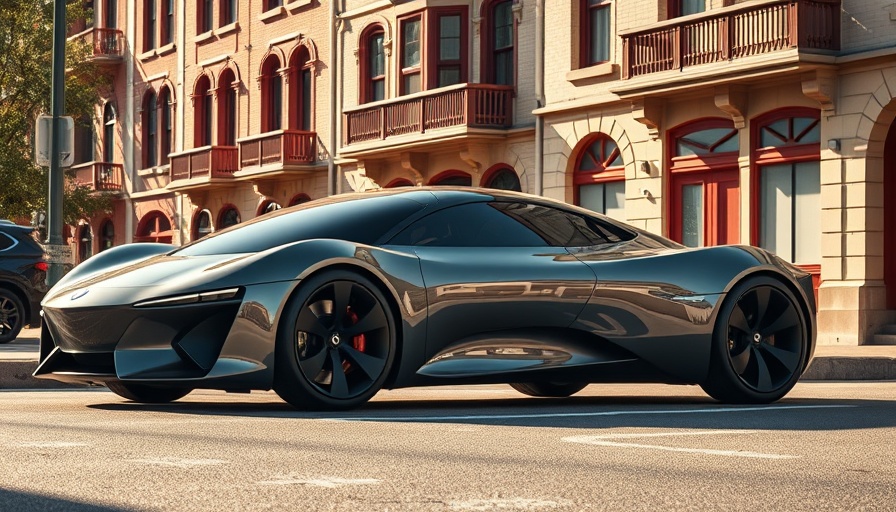
Tesla, a frontrunner in electric vehicle innovation, has recently faced significant hurdles with its trademark applications for the terms "Robotaxi" and "Cybercab". These complications come at a crucial time as the company gears up for the potential launch of its autonomous ride-hailing services by June 2025. Understanding the implications of these trademark challenges offers insights into both Tesla's future strategies and the larger landscape of technological developments in the mobility sector.
A Closer Look at the Robotaxi Trademark Challenge
The United States Patent and Trademark Office (USPTO) has refused Tesla’s application for the "Robotaxi" trademark on the grounds that the term is considered too generic. The USPTO's decision stated that "Robotaxi" merely describes vehicles that are electric in nature and underscores its widespread use by multiple companies in the industry. This refusal, issued as a "nonfinal office action", provides Tesla with a three-month window to appeal the decision—an opportunity that could be pivotal for the company's future branding strategies.
The Significance of Trademarks in the Tech Industry
Trademarks play a critical role in protecting a company’s brand identity, particularly in technology-intensive markets. In Tesla's case, securing the "Robotaxi" trademark would not only position it favorably in the rapidly growing ride-hailing sector but also stave off competitors from adopting similar branding. This is especially significant in a market poised for disruption due to the integration of autonomous technology. The refusal highlights the challenges that businesses face in establishing unique identities amidst a competitive environment saturated with technological terms.
What’s Next for Tesla's Trademark Applications?
Tesla remains undeterred as it channels resources into rebutting the USPTO's refusal. The company can provide evidence that asserts its innovative use of the term "Robotaxi" differentiates it from generic usage. They may present marketing materials, product specifications, and customer outreach efforts that showcase their unique approach to autonomous transportation. This could potentially shift the USPTO’s perception and lead to approval.
Cybercab Trademark Issue: A Side Note in Tesla’s Road Ahead
Alongside the Robotaxi trademark, Tesla's application for the term "Cybercab" has encountered additional roadblocks, primarily due to other companies filing for similar "Cyber" trademarks. This situation reflects a broader pattern within the tech industry where emerging concepts often trigger a trademark rush, creating a battleground for companies vying to establish their name in an evolving marketplace.
Broader Implications for Ride-Hailing and Autonomous Vehicles
The design of the Cybercab, Tesla's purpose-built vehicle, is deeply intertwined with the company's ambitions for the autonomous ride-hailing market. The vehicle’s specifications are likely aligned with features that promote passenger safety and comfort, directly appealing to a growing societal interest in shared mobility solutions. The outcome of these trademark applications will not only affect Tesla but might set a precedent for how tech companies approach branding in the face of regulatory challenges.
Technological Trends Impacting the Mobility Sector
The ongoing debates surrounding ride-hailing technologies reflect a larger narrative of innovation within the automotive landscape. As cities across the globe aim to reduce traffic congestion and lower carbon footprints, the demand for autonomous transport solutions is surging. Companies are exploring electric and digital innovations to respond to these challenges, which could reshape urban mobility and redefine the transportation experience for millions.
The Road Ahead: Navigating Potential Outcomes
As Tesla takes the crucial steps to address the USPTO's queries, the future of their ride-hailing services teeters on this pivotal trademark decision. If approved, "Robotaxi" could emerge as a cornerstone of Tesla's branding strategy, influencing consumer perceptions and setting a benchmark for competitor response. However, facing refusal could prompt a redesign of marketing frameworks and push Tesla to innovate more aggressively to corner the market.
Conclusion: Understanding the Stakes for Tech Giants
The challenges arising from trademark applications underscore the complexities that traditional and tech-driven companies face in today’s dynamic business environment. For Tesla, these trademark issues serve as both a barrier and a catalyst for innovation as they navigate the future of mobility. The outcome of their appeals may not only redefine their brand identity but might also influence the entire ride-hailing landscape.
 Add Row
Add Row  Add
Add 



Write A Comment